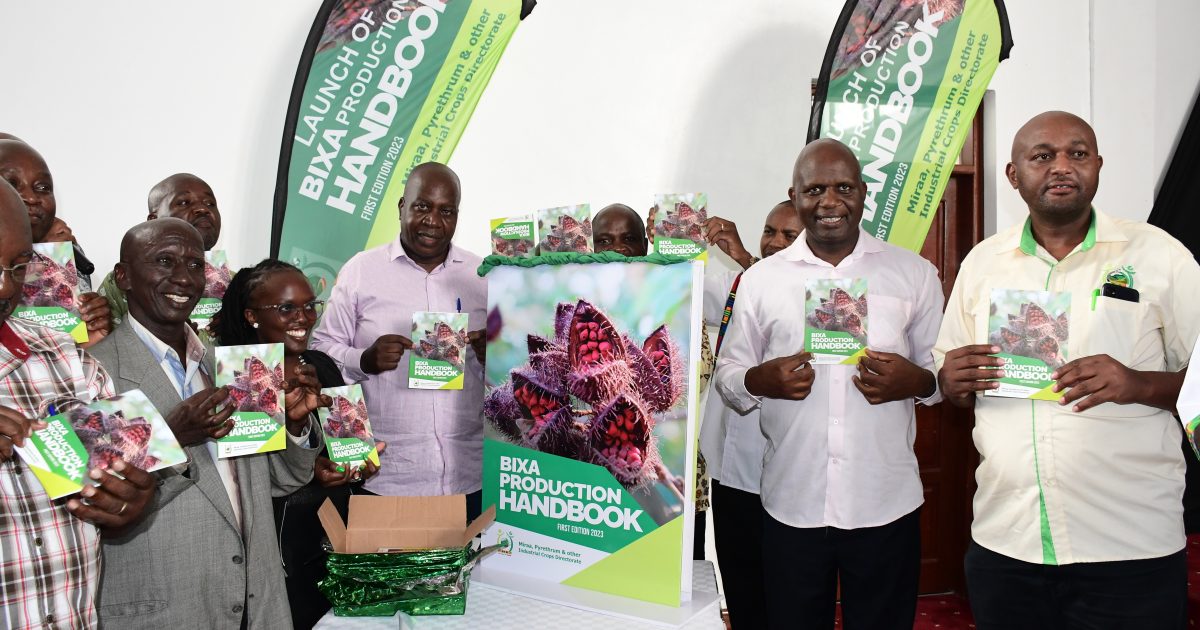The Principal Secretary for the State Department for Agriculture Dr Paul Ronoh has affirmed the government’s commitment to revitalising the Bixa sub-sector.
Bixa a shrub majorly produced in Kwale, Lamu, and Kilfi counties bears pods containing seeds coated with a red pigment on the waxy arils that is commercially extracted to produce a natural dye called annatto.
Annatto is utilized as a natural dye and food color in various cuisines to impart a yellow-orange hue to foods such as cheeses and margarine. It is also used in the pharmaceutical and cosmetic industries.
Bixa is a recently scheduled value chain under the Agriculture and Food Authority (AFA).
The scheduling, PS Ronoh said in his speech read by Dr Gilbert Muthee, Director Agribusiness during the launch of the Bixa production handbook in Mombasa underscores the commitment of the Government to develop and promote the Bixa industry.
“This calls for great commitment by the National Government and its agencies, County Governments, and other value chain actors,” stated the PS adding that Bixa has been a major economic driver for growers and traders in the Coast region.
PS noted the value chain faces deficits in extension material, investment in research, legislation, and institutional set up among others.
To mitigate the challenges, the government has developed the draft Crops (Bixa) Regulations 2023 and a production handbook to provide solutions to the Bixa sub-sector.
“The Bixa Production Handbook is, therefore, an integral part in the implementation of the National Export Development and Promotion Strategy and is aligned to the Agricultural Sector Transformation and Growth Strategy (ASTGS) 2019-2029, Bottom-Up Economic Transformation Agenda (BeTA) and the Kenya Kwanza Manifesto,” said PS Ronoh.
He added that the development of the handbook is one of the government’s drives to promote the value chain with the aspiration to match it to other value chains.
“This handbook though focusing on production is a vital component of the wider government initiatives on improving the way the crop is produced, traded, and consumed,” said Ronoh.
On his part, AFA Chairman Cornelly Serem assured farmers that they would benefit from bixa cultivation. “We will not continue to import synthetic food colors while we can produce in the Coast region”, he said.
Serem urged farmers to increase production hinting at a proposal to increase the levy on importation of food colors to protect local farmers.
AFA Director General Mr Willis Audi says the Kenya Kwanza government has identified bixa as one of the crops that need to be promoted as an export crop in line with the Bottom Up Economic Transformation Agenda (BETA).
By Sadik Hassan





